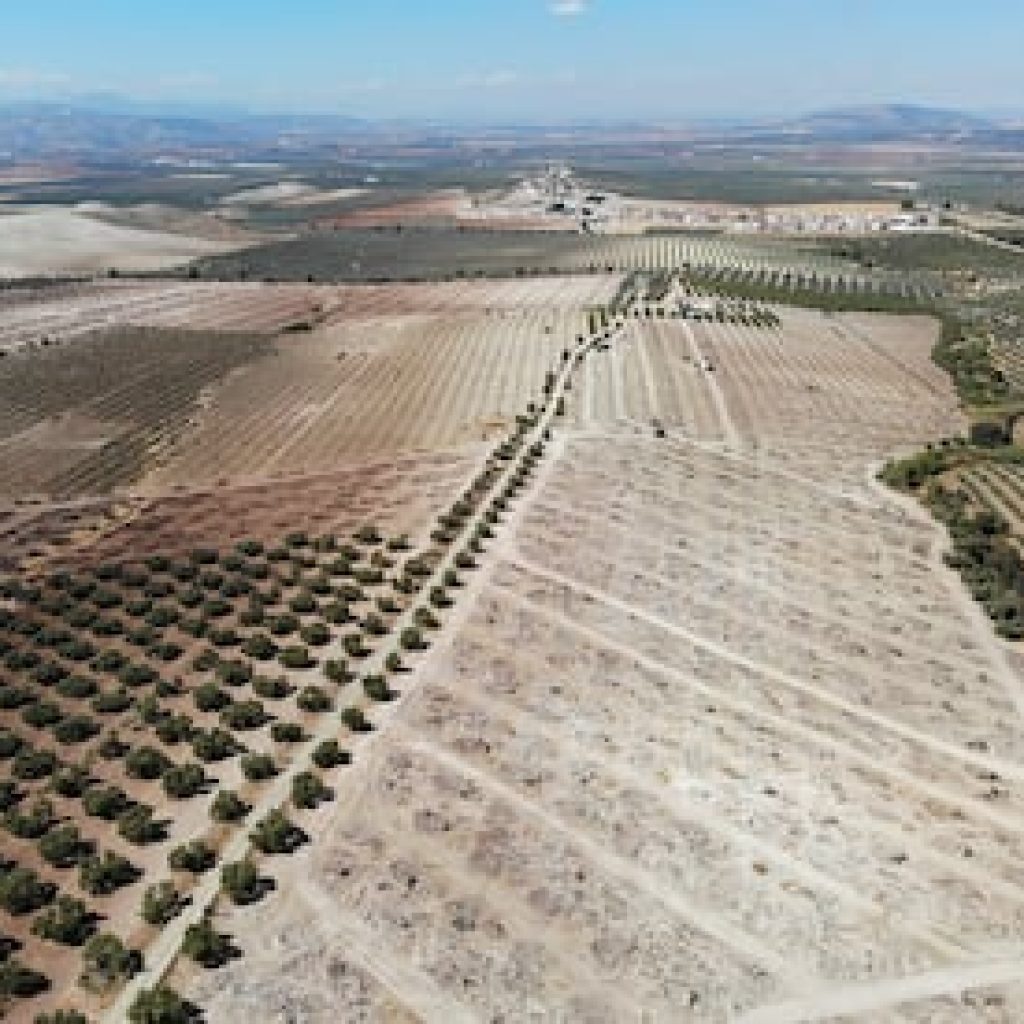Since 2019, there has been a boom of applications for renewable energy projects focused on the creation of macro-plants to produce photovoltaic and wind energy (…) “wars” have arisen following the occupation by large energy complexes of soils with high agronomic value, especially when they are highly productive and if they are irrigated lands. (…) There are already numerous citizen platforms demanding a “respectful” implementation of renewable energies with the territory (…) we must add to the environmental and territorial impact studies the citizen participation, an analysis of the opinions of the society that will host these facilities.
Since 2019, there has been a boom in applications for renewable energy projects focused on the creation of macro plants to produce photovoltaic and wind energy, however, on occasion, some have been found to be socio-environmentally unfeasible. Land use conflicts are common when renewable energy facilities are planned without public participation.
In recent months, “wars” have arisen following the occupation by large energy complexes of land with high agronomic value, especially when it is highly productive and if it is irrigated land.
The Covid-19 pandemic has already shown how important and necessary it is to have relatively close and assured production of basic foodstuffs. Dependence on food from distant places causes great risks, both due to movements in the price of oil and to any political-military-territorial conflict that may arise. For example, what happened with cereal from Ukraine, when in Spain there are thousands of hectares that are not cultivated because they cannot compete in price. The soils that for thousands of years have fed the different societies must be respected.
Some regional governments are limiting in their territories the implementation of wind farms or photovoltaic parks (excluding self-consumption) with laws that prohibit locating them on land where there are irrigated crops. Castilla y León joined an express prohibition that already existed in Extremadura since 2021 (newspaper 20minutos, 28.10.2023). Also in Castilla-La Mancha and Aragon it is contemplated that an irrigated crop can be a reason for a renewable project not to obtain a positive rating in the environmental assessment statement.
On the contrary, there are more autonomous communities that do not take into account the type of crop or land for the deployment of renewables, beyond meeting the minimum requirements for a positive environmental impact assessment. This is the case in Murcia and Andalusia, another of the communities with the greatest presence of renewables.

Numerous citizen platforms are already calling for the implementation of renewable energies “respectful” of the territory. In Andalusia, for example, Alianza Energía y Desarrollo (Aliente) denounced some time ago that olive groves were being uprooted in Malaga and Cordoba to install photovoltaic installations.
Aerial view of an olive grove where numerous trees are uprooted to install one of the planned solar photovoltaic power plants in Cartaojal (Málaga).
Source: El País newspaper, Seville, 20.09.2022.
In the Region of Murcia, also recently, there have been demonstrations in this sense. For example, in Puerto Lumbreras (April 2024), about a thousand people and two hundred vehicles were concentrated to “say loud and clear that Puerto Lumbreras is not sold and says no to photovoltaic plants installed in irrigated areas (the planned installation ‘would destroy the irrigable perimeter, which has already received a grant for the modernization of irrigation systems, and is declared of public interest by the State’.
Perhaps this is the reason for the increasing exploitation of floating solar photovoltaic energy, of which Southeast Asia is a world reference, for the use of water reservoirs for irrigation.
Recently, RD. 662/2024 of July 9 (BOE August 1, 2024) has been published, establishing the regime to which the installation of floating photovoltaic plants in reservoirs located in the public hydraulic domain in the hydrographic basins whose management corresponds to the General State Administration, and modifying the Regulation of the Public Hydraulic Domain, approved by Royal Decree 849/1986 of April 11, 1986, must be subject.
In short, land use conflicts are becoming more and more frequent. From the STEP Project we work in the generation of cartographies and multicriteria analysis to know the suitability and aptitude of the lands that could host renewable energy producing facilities; but it is not enough, we must add to the environmental and territorial impact studies the citizen participation, an analysis of the opinions of the society that will host these facilities.

